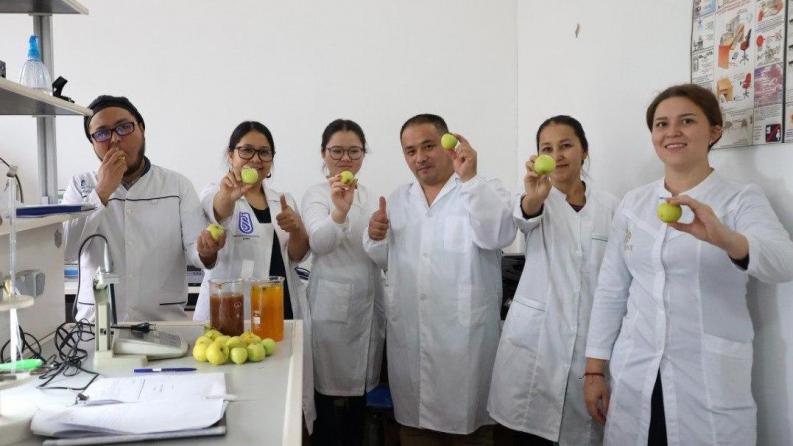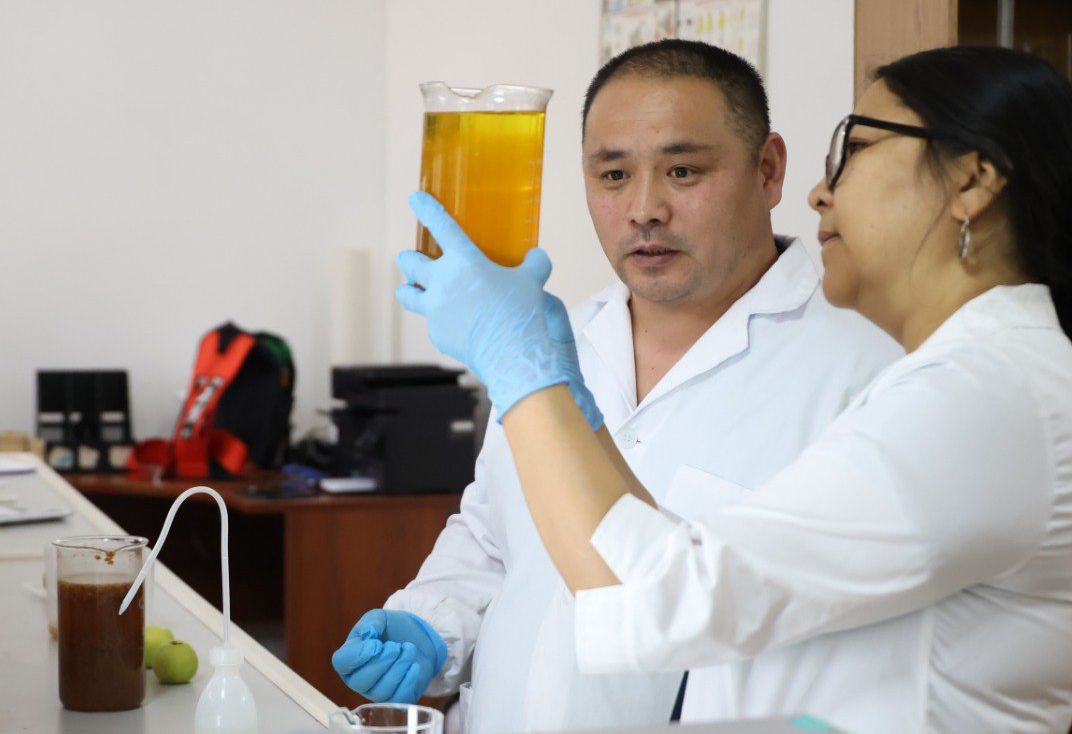Edible protective coating for vegetables and fruits: technology from Satbayev University scientists

Scientists at Satbayev University have developed a technology for producing the edible protective film for vegetables and fruits.
Satbayev University's young scientists Shaimardan Yesbol and Kabdrakhmanova Ainur Kanatkyzy have elaborated a technology for producing edible film material for food products, including vegetables and fruits, with antimicrobial and pH-sensitive properties, allowing to preserve and significantly increase their shelf life.
Nanocellulose, carboxymethylcellulose and pectin obtained from agricultural waste, as well as hibiscus flower extract, better known as carcade, which gives the film antibacterial properties, which helps to increase the shelf life and storage of not only vegetables and fruits, but also other food products, and also solves the problem of protection, are used as raw materials for manufacturing the protective film from external influences and the safety of their transportation.
The use of nanocellulose gives the film strength, pectin obtained from fruit residues, including apples, oranges and lemons, will preserve the freshness and quality of food, and hibiscus flower extract, growing in the southern region of the country, gives the edible film pH sensitivity and antibacterial properties. The edible packaging film for food products, including vegetables and fruits, obtained as the research result of our scientists, was developed using waste from the agro-industrial complex of our republic and fully meets the "green" technology requirements, as well as helps to eliminate the negative effects of chemicals on environmental components and improve sanitary and hygienic working conditions, introduction of innovative products to Kazakhstan’s market.
In addition, it will be possible to store and transport vegetables and fruits grown in the country for a longer period of time, which will create conditions for exporting Kazakhstani products abroad. In turn, the development of technology for producing the pectin from agricultural waste will allow Kazakhstani food producers to free themselves from import dependence and evolve environmentally-friendly production of pectin in the country.











